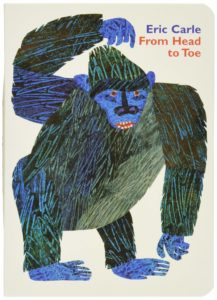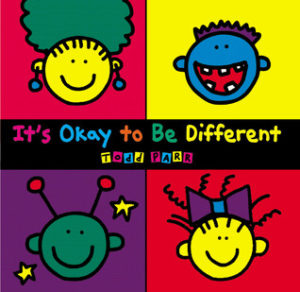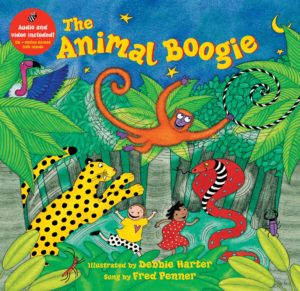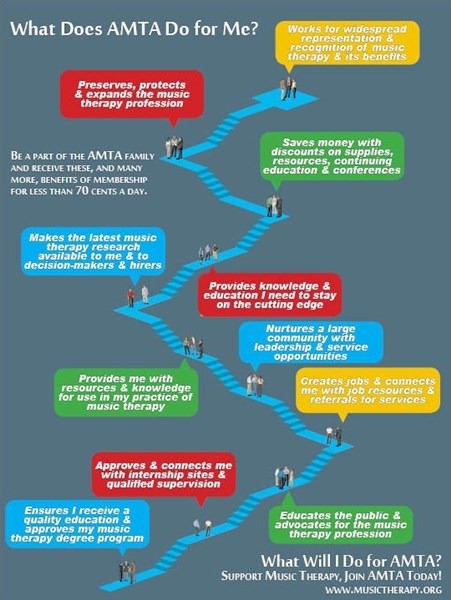As clinicians, adding novelty to our repertoire is key to promoting a healthy and engaging therapeutic relationship with our clients. One way to do this, that may not always be thought of, is through using books! For clinicians, caregivers, and teachers alike, books that can be sung are a great way to practice reading, reinforce learning, and embed other goal areas into one story.
Singable Books
Head to Toe by Eric Carle
by Eric Carle
This book doesn’t have a specific melody, but this is the perfect opportunity to flex your songwriting skills! “Head to Toe” is fantastic for animal identification, body awareness, and so easy to incorporate movement into. Did someone say it’s time to stomp like an elephant? Or slither like alligator?
 It’s Okay To Be Different by Todd Parr
It’s Okay To Be Different by Todd Parr
Parr’s books are classics in the world of early childhood literature. The bright color scheme and childlike illustrations are just some of the benefits of opening up a Todd Parr book. This is another book without a fixed melody, but again, gives you the opportunity to create a memorable melody with your client, child, or student! Within each page, you can embed different objectives or experiences. Let’s count how many teeth are in his mouth! What animal do you see on the page? What planet is this? Parr’s books are visually stimulating and inclusive to everyone.

The Animal Boogie by Debbie Harter
“The Animal Boogie” is a book with a pre-established melody (yay!). What’s cool about this book is that you can incorporate the movements of each animal into a little dance party on each page! With a pre-established melody, you can spend more time on reading fluency, since the structure is already created for you. Plus, it’s a blast to sing boogie oogie oogie during each chorus!
Here are a few more books based off popular songs!
Good Vibrations: A Children’s Picture Book – The Beach Boys
Octopus’s Garden – Ringo Starr of The Beatles
Respect: A Children’s Picture Book – Otis Redding (Did you know he wrote the original song?)
Happy! – Pharrell Williams
Every Little Thing – Bob Marley
Sweet Child o’ Mine – Guns N’ Roses
Happy singing and reading!


